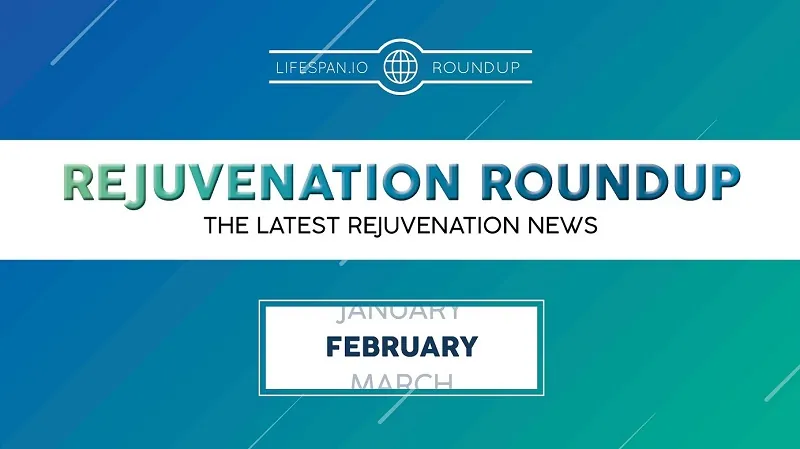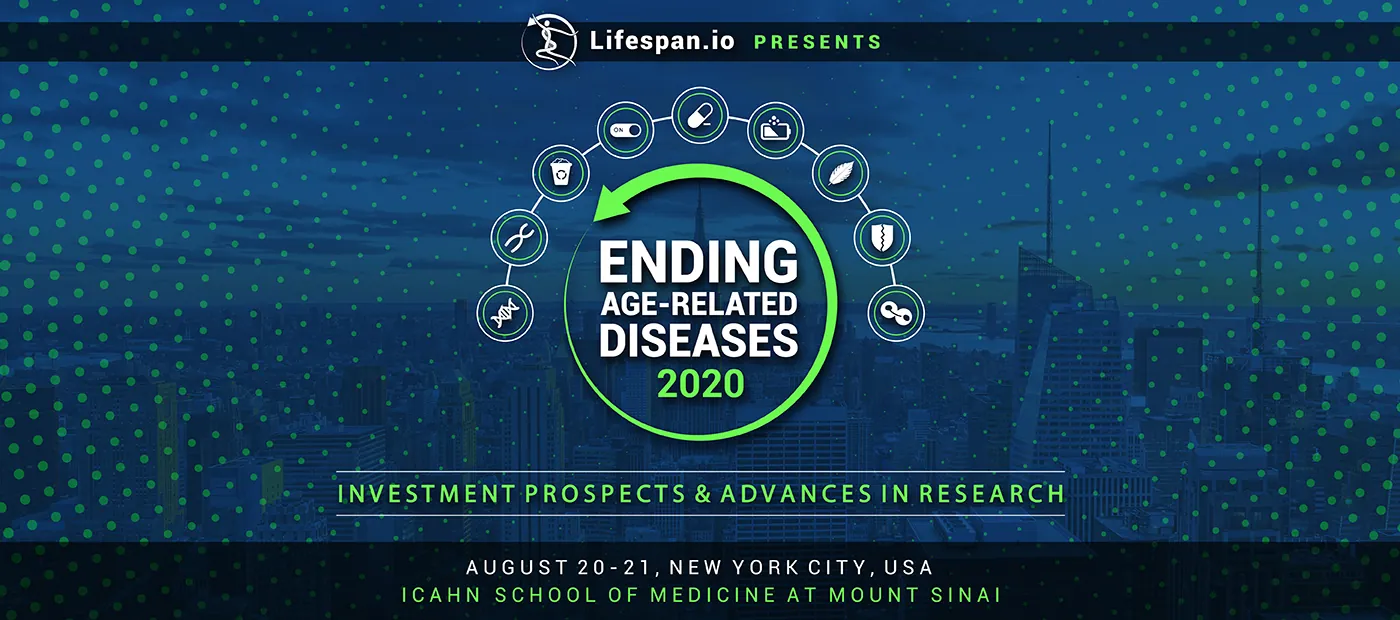Several leaps have been made this February: Leap Year’s Day, leaps in rejuvenation biotechnology development, and a leap of our own in bringing our two websites together into one.
If you want to help us and the world of rejuvenation biotechnology leap into the public consciousness and into the clinic, become a Lifespan Hero today.
LEAF News
Team and activities
Our annual conference series, Ending Age-Related Diseases: Investment Prospects & Advances in Research, will continue for its third year, featuring researchers at the forefront of rejuvenation biotechnology. Hosted at the Mount Sinai Medical Center in New York City on August 20-21, 2020, this event promises to be enlightening and informative for professionals and laypeople alike.
Interviews
 Irina & Michael Conboy – Resetting Aged Blood to Restore Youth: The Conboys discuss their past work along with apheresis as a potential method of filtering out the overexpressed factors that occur as the result of aging – and cause further age-related diseases.
Irina & Michael Conboy – Resetting Aged Blood to Restore Youth: The Conboys discuss their past work along with apheresis as a potential method of filtering out the overexpressed factors that occur as the result of aging – and cause further age-related diseases.
Hanadie Yousef – Embryonic Proteins for Tissue Regeneration: Juvena Therapeutics is discovering proteins found in the embryonic environment that cause muscle and other tissues to regenerate, potentially leading to therapies for sarcopenia and age-related brain degeneration.
Lewis Gruber – Senotherapeutics: Alongside his wife Misty, Lewis Gruber discusses what SIWA Therapeutics is doing to address the problem of senescent cells by using monoclonal antibodies, which are used for cancer immunotherapies.
Rejuvenation Roundup Podcast
Ryan O’Shea of Future Grind hosts this month’s podcast, showcasing the events and research discussed here.
Research Roundup
 Refining the Allotopic Expression of Mitochondrial Genes: There are significant differences in the codons used by mitochondria and nuclear DNA, and understanding these differences is critical for expressing mitochondrial DNA in the nucleus, which is the core goal of MitoSENS.
Refining the Allotopic Expression of Mitochondrial Genes: There are significant differences in the codons used by mitochondria and nuclear DNA, and understanding these differences is critical for expressing mitochondrial DNA in the nucleus, which is the core goal of MitoSENS.
Macrophages Become Scars in the Heart: Rather than just summoning fibroblasts to the site of injury, macrophages extrude their own fibers, thus leading to scars forming in place of healthy tissue. A therapy that targets macrophages may be the first step towards giving adults the regenerative capabilities of young children.
 What Do DNA Smiley Faces Have to Do With Cancer Research?: A technique called DNA origami can be used to make tiny boxes that open with molecular keys, offering new opportunities for targeted drug delivery and other medical uses.
What Do DNA Smiley Faces Have to Do With Cancer Research?: A technique called DNA origami can be used to make tiny boxes that open with molecular keys, offering new opportunities for targeted drug delivery and other medical uses.
An epigenetic clock for human skeletal muscle: Focusing on dinucleotide methylation that is specific to human muscle, this clock offers more accuracy than clocks that analyze all tissues.
Two conserved epigenetic regulators prevent healthy ageing: These regulators diminish the nuclear expression of mitochondrial proteins, promoting age-related problems such as cognitive decline.
Hematopoietic stem cell transplants increase lifespan in mice: Avoiding the need for irradiation as in a marrow transplant, this study showed that transplanting HSCs increased healthy lifespan without side effects in a mouse model.
Neural precursor cell transplants promote motor recovery after stroke: This mouse study showed that reprogrammed neural precursor cells help the brain regenerate synapses and restore function.
Depleting microglia improves traumatic brain injury recovery : After a traumatic brain injury, the brain’s immune cells often become neurotoxic. This mouse study showed that killing most of these cells and allowing them to recover alleviates these effects.
Eating a Mediterranean diet for a year promotes a healthy gut microbiome: Featuring 612 human volunteers, this study showed that a Mediterreanean diet promoted the growth of health-associated bacteria and limited the amounts of frailty-associated bacteria.
Caloric Restriction Reprograms the Single-Cell Transcriptional Landscape of Rattus Norvegicus Aging: This atlas shows exactly what happens to the cell during caloric restriction in a rat model.
A Deep Learning Approach to Antibiotic Discovery: A deep learning algorithm identified many compounds that show antibiotic effects, including eight that do not resemble known antibiotics. One of these, halicin, is effective against strains of bacteria that are widely considered dangerous.
Age Reversal and Pluripotency Induced in Supercentenarian Cells: This study shows that it is possible to use OSKM to induce pluripotency in cells from people who are over 110 years old.
News Nuggets
 Why Life Expectancy Could Rise Significantly in the Near Future: Originally published by the German magazine Monat, this article offers an introduction to rejuvenation biotechnology.
Why Life Expectancy Could Rise Significantly in the Near Future: Originally published by the German magazine Monat, this article offers an introduction to rejuvenation biotechnology.
JangoBio Creating First Organoids for Complete Hormone Restoration: In this press release, JangoBio announces that it has restored hormone production through the use of organoids created with stem cells.
Coming Up
The Longevity Leaders Congress: Held on April 21-22 in London, UK, this event will focus on aging science, assistive technologies, and risks relating to retirement funds. Use the code LEAF15 for a 15% discount.





